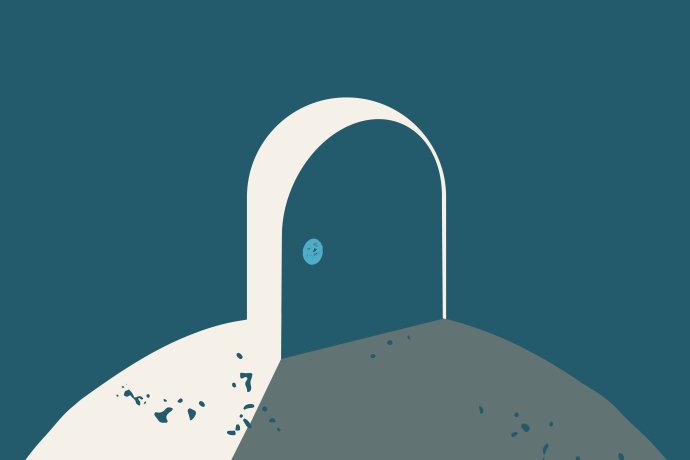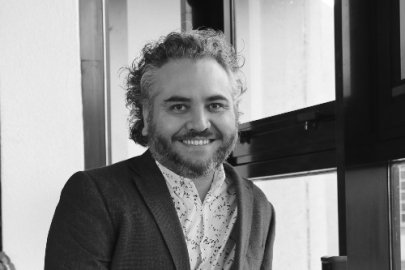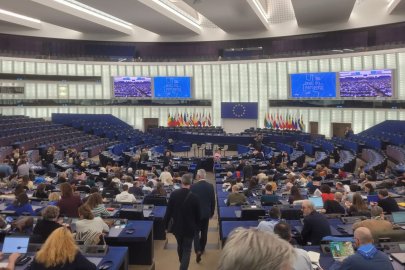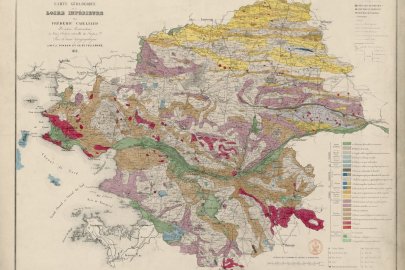The essential
Should we think about the place of biodiversity in the city, or give it room to invent itself? What kind of economic system, value chain and business model should we consider in a world of scarcity? How can we imagine the future of our territories and the interaction between urban and rural areas in a world of limited resources? And how will our lifestyles evolve?
These are just a few of the questions posed by the Agence d'urbanisme de la région nantaise, the École nationale d'architecture de Nantes, SCE-KERAN and the Institut d'études avancées de Nantes, who have joined forces to create the “Habiter au prisme des limites planétaires” chair to rethink territorial, urban and architectural approaches. Together, they seek to stimulate a collaborative research dynamic focused on the production of knowledge and the formulation of transformative hypotheses capable of giving rise to new thinking, practices and ways of doing things.
This partnership residency will take place over a three-year period from 2024 to 2027, with three successive 9-month residencies for one researcher (2024-2025; 2025-2026; 2026-2027).
Three annual calls for applications will successively select three research proposals that will enrich the reflections and methodological approaches of the partners involved in the Nantes area, while supporting research excellence in a framework conducive to offering it territorial and international visibility.

Living within planetary limits: rethinking territorial, urban and architectural approaches
If the notion of “inhabiting” refers to the relationship between man and the (mi)lieux in which he evolves, that of “habitability” designates the conditions that enable him to inhabit a (mi)lieu, whether on the scale of private space (habitat, housing) or that of the city, landscape or territory.
This notion of habitability is developing as certain planetary limits are reached, and is increasingly raising questions for those involved in urban and architectural design: how can habitability be guaranteed in a world undergoing ecological and social transition? How can we shape our living environment in the light of planetary limits?
Within the framework of the Chair, this topic will be explored through four key issues:
- Changing lifestyles, practices and aspirations within society, which call into question the development model based on metropolization and concentric spatial dynamics on the scale of a large territory.
- The question of “habitat” as such, of the relationship between living spaces and property, in the face of the scarcity of available land, family reorganization, professional mobility... Remaining for the moment in the realm of “experimentation”, new ways of meeting the need for housing are likely to sketch out new forms of solidarity and innovation.
- The exploration of the potential of existing buildings and the renewal of the city “on itself”, the fruit of the perpetual evolution of large conurbations, but whose priority asserted in contemporary urban strategies and its generalization is profoundly transforming the ways in which city players operate.
- The role of “living things” in combating the collapse of biodiversity through more sustainable development methods capable of delivering real ecological gains. This means strengthening integrated approaches to “reconcile” the city and nature by bringing together professional worlds that are still far apart, and, more broadly, poses a “cultural” challenge in terms of our relationship with nature and the living world.
Profile and conditions
Hosted at the Institut d'études avancées for nine months from October to June, the researcher pursues his or her research work in interaction with partners to disseminate and inspire urban and regional planning practitioners beyond academic circles.
With a doctorate in the humanities and social sciences, physical sciences, environmental sciences, life sciences or engineering, and the ability to work in another discipline, the researcher's research is linked to urban planning, architecture and regional issues.
This Chair calls on people with teaching skills to convey their ideas to a varied public (students, professionals and elected representatives), and a real appetite for collaborative projects involving academics and socio-economic and institutional players.
The selection process takes place through three successive calls for applications. The first two calls are now closed. The next call, for the 2026–2027 residency, is currently open until January 5, 2026.
Activities
Throughout the life of the Chair, a variety of activities will be organized to support the research produced.
Three research projects in line with the theme and objectives formulated by the Chair's partners are successively selected to take place in a framework conducive to interaction with international and local researchers, students and socio-economic players. These projects are likely to give rise to scientific publications.
Activities to promote, mediate and disseminate the work to a variety of audiences are also organized:
- Institute residents, as part of the weekly seminar;
- employees, elected representatives, researchers and students from partner organizations, as part of workshops co-organized with them.
These formats of exchange and interaction will be privileged moments of meeting and sharing.
Perennial productions in a variety of formats (video, audio, prints, etc.) will be produced, with the aim of delivering lessons and perspectives for the transformation of the modes of doing and practices developed by the Chair's partners.











